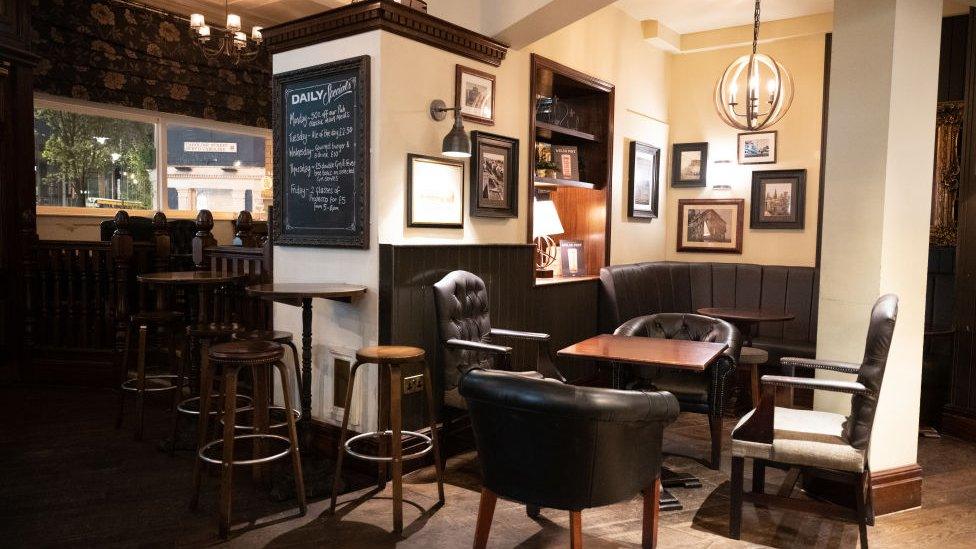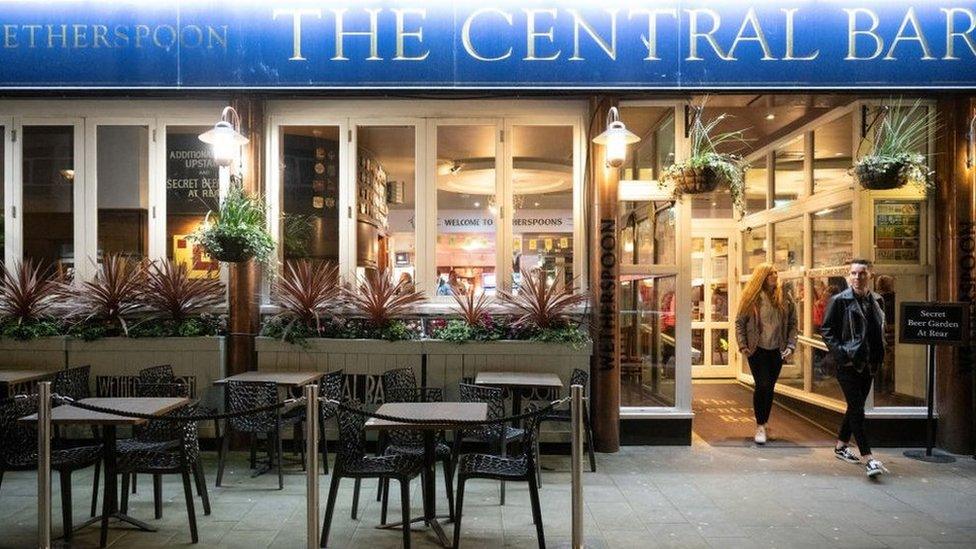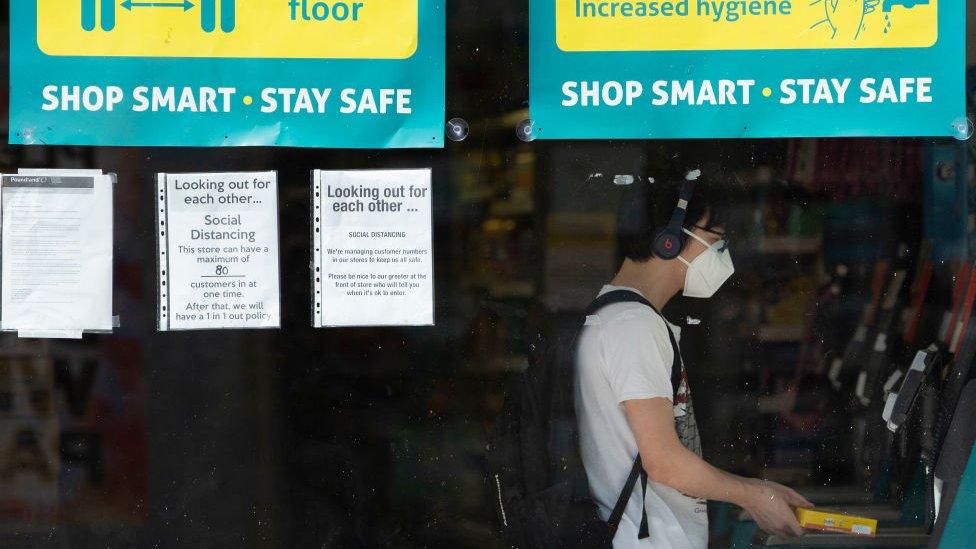Coronavirus: 'Around 2.8m' pints of old beer in Welsh pubs and clubs
- Published

First Minister Mark Drakeford has said he could give no promises on the return of pubs
Around 2.8 million pints of out of date beer will need to be disposed of from Wales' shut pubs and clubs, the Campaign for Real Ale has estimated.
But "highly polluting" beer "poses a significant environmental risk" according to Natural Resources Wales.
Welsh Water says it will work with businesses "to agree how and when the drinks can be disposed of".
But an opposition politician warned that the company was not used to dealing with such a volume of old beer.
Wales' 3,500 pubs and clubs - along with cafes and restaurants - have been closed since 20 March.
The issue was raised with Environment Minister Lesley Griffiths by Plaid Cymru's Llyr Gruffydd in the Senedd's environment committee last week.
Mr Gruffydd said that pubs and brewers were "working with Welsh Water best they can to try and manage that beer destruction - which is what they call it".
He queried if ministers had a role to play "because I'm told that there are capacity issues for Welsh Water - they're not used to having to deal with this amount of beer that needs to be tipped away and if they get it wrong, then obviously there will be environmental consequences".
Lesley Griffiths responded: "I have to say, I hadn't thought about beer being destroyed".
"Clearly, there would be an issue about where it would go," she added, saying she would ensure it is on the agenda for her next meeting with Dŵr Cymru Welsh Water.

Pubs and restaurants have been closed since March
A Welsh Water spokesman told BBC Wales: "We are in the process of liaising with pubs across our operating area to see how we can work with them on the disposal of out of date beverages.
"While we are keen to support these businesses in whatever way we can, we must also ensure that any disposal into the sewerage network is done in a carefully, controlled way.
"This is to ensure that there is no impact on the sewerage service we provide all our other customers and also that there is no harmful impact on the environment in our care."
The Campaign for Real Ale (Camra) estimates Wales' 3,500 pubs and clubs pubs have, on average, 10 barrels in their cellar at any given time. Most are kegs containing 11 gallons (88 pints) each, external - although many real ales come in nine-gallon (72-pint) casks.
The best-before dates on pasteurised beer - including most lagers - are usually three to four months after delivery, while those for real ales and other unpasteurised beer are usually set at six to nine weeks.
Tom Stainer, Camra's chief executive, said some pubs have been able to sell beers as takeaway or delivery to the local community, adding "this is an incredibly difficult time for the beer and pubs industry, and we'd encourage everyone to support these businesses by shopping local".
A spokesman from Natural Resources Wales said: "Inappropriate disposal of beer poses a significant environmental risk as it's highly polluting. It's our job to protect Wales' rivers so we're speaking with water companies about the safe disposal of out of date beer because of lockdown.
"We ask that the hospitality sector contact their water company, or if not on a public sewer to contact us, to find a solution to beer disposal that does not harm the environment."
He warned: "Beer must not be disposed of to sewer without permission from the relevant sewerage undertaker or water company. Beer must not be disposed of to private sewage works, septic tanks or surface water drains, as this will impact the environment."
According to HMRC rules, when publicans get rid of large amounts of spoilt beer, duty doesn't need to be paid on it. Brewery representatives normally oversee this process, but because of coronavirus social distancing they cannot visit premises at the moment.
The UK government has temporarily allowed brewers to appoint publicans to oversee the dumping of beer, external. But they must keep a proper record and provide evidence, including perhaps filming a video as proof it has been destroyed.
The temporary change will apply while social distancing restrictions remain in place.
- Published15 June 2020

- Published16 June 2020

- Published14 July 2021
